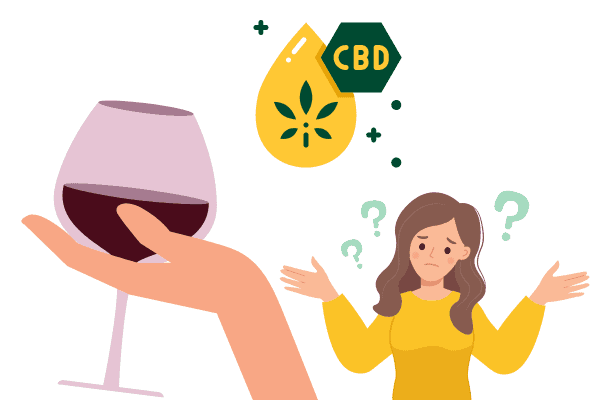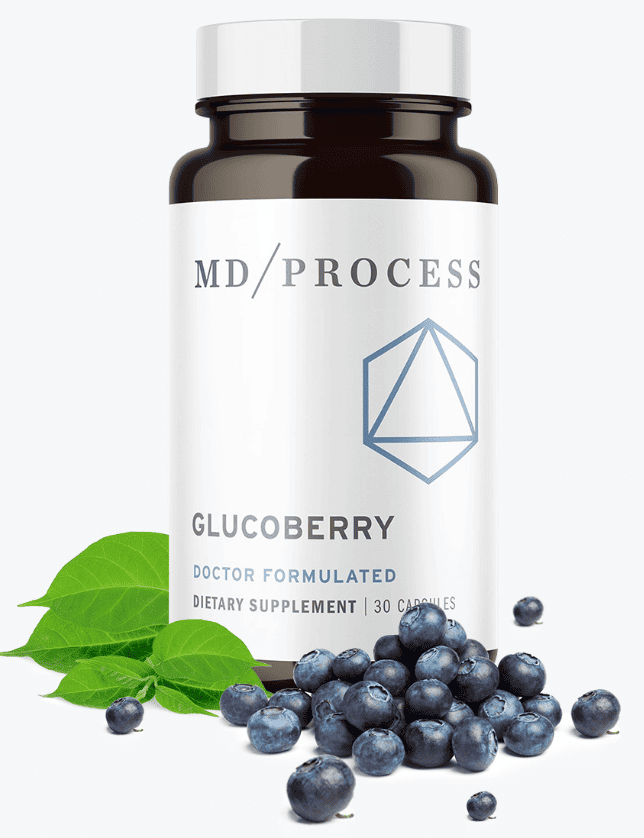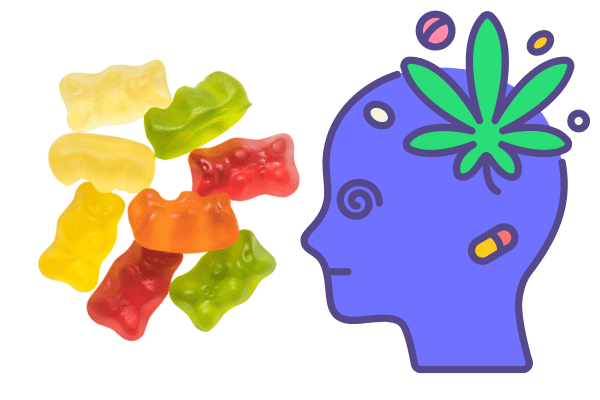CBD Gummies and Alcohol: The Effects of Mixing
Unveiling the Truth: Can CBD Gummies Enhance or Diminish the Effects of Alcohol?
Have you ever wondered what happens when you mix THC-infused gummies from the cannabis plant with binge drinking? The combination of these two substances, marijuana and alcohol, has become a subject of curiosity for many. THC gummies, a popular product derived from the cannabis plant, have gained immense popularity due to their potential health benefits. On the other hand, alcohol is a widely consumed drink known for its ability to alter our state of mind.
It’s crucial to understand the pharmacology of these substances and conduct enough research on their effects on the mind to make informed decisions about consumption. Whether you’re looking for a way to relax or simply curious about the possibilities, we’ll explore the substance together.
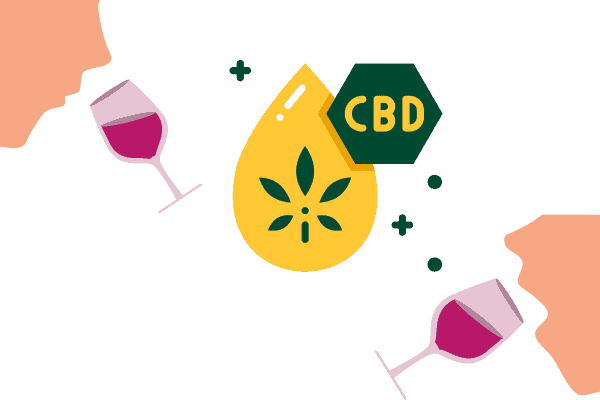
CBD gummies are hemp-based products infused with CBD oil, a mind-altering substance in cannabis plants. These delicious treats come in various strengths measured in milligrams (mg). They are sought after for their potential mood-enhancing properties and as an alternative way to manage certain health conditions.
Alcohol, on the other hand, is known for its ability to induce intoxication when consumed in excess. We all know that feeling of being drunk after having a few drinks. But what happens when CBD, a hemp substance containing THC, enters the equation? Can it counteract some of alcohol’s effects or amplify them? CBD has health benefits.
While clinical research on the interactions between CBD and alcohol is limited, anecdotal evidence from both humans and animals suggests that consuming CBD products before drinking may help reduce the adverse side effects of consumption.
Are you intrigued yet? Let’s dive deeper into the perplexing world of CBD gummies and alcohol, exploring their THC content, health effects, and how people use these products. Without losing sight of context or specificity, prepare for an informative journey where we cut straight to the chase without any unnecessary fluff!
Effects of Mixing CBD and Alcohol
Increased Drowsiness or Sedation
Combining CBD and alcohol can have similar effects on the body, potentially resulting in increased drowsiness or sedation. THC and CBD have calming properties, which may intensify these effects when used together. If people consume CBD gummies and alcohol simultaneously, they might feel more tired or relaxed.
Individual Factors and Varied Effects
It’s important to note that the effects of mixing CBD and alcohol, especially in people, can vary depending on individual factors. Factors such as body weight, metabolism, tolerance levels, and the dosage of THC and CBD substances can influence how they interact. For some individuals, the combination might lead to pronounced drowsiness, while others may not experience a significant change in their level of alertness.
Impact on Blood Alcohol Levels
Research suggests combining CBD and alcohol does not significantly impact blood levels or have notable THC health effects. In a study published in the Journal of Clinical Psychopharmacology, participants were given either a placebo or a combination of CBD and alcohol. The study found no significant difference in blood levels between those who consumed CBD and alcohol and those who drank only alcohol.
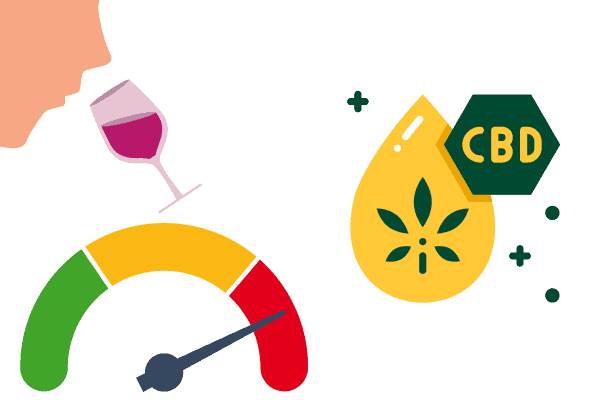
Exercise Caution Due to Potential Additive Effects
Despite the lack of impact on blood levels, it is still important to exercise caution when using both substances together due to potential additive effects. Combining CBD gummies with alcoholic beverages could enhance their sedative properties and impair coordination. It is advisable to avoid activities that require alertness and coordination, such as driving or operating heavy machinery when under the influence of this combination.
Potential Benefits of Using CBD for Alcohol Cravings
Exploring the Link between CBD and Alcohol Cravings
Research suggests that CBD may potentially reduce cravings associated with alcohol use disorder. While the topic is still being studied, there are indications that cannabidiol’s interaction with the endocannabinoid system could play a role in curbing these cravings.
Shedding Light on Alcohol Cravings
Alcohol cravings can be intense and challenging to overcome for individuals struggling with alcohol use disorder. These cravings often lead to relapse and hinder efforts toward sobriety. Understanding how CBD might help alleviate these cravings could provide new avenues for managing addiction.
The Role of CBD in Reducing Cravings
- Interaction with the Endocannabinoid System:
- The endocannabinoid system (ECS) regulates various bodily functions, including mood, appetite, and sleep. CBD oil and other CBD products can also impact the ECS. Additionally, it is essential to note that CBD does not affect blood alcohol concentration.
- Studies indicate that CBD interacts with ECS receptors, potentially influencing neurotransmitter release and modulating brain circuits involved in craving responses.
- By targeting specific pathways related to reward-seeking behavior, CBD may help reduce the intensity of alcohol cravings.
- Anxiety Reduction:
- Many individuals use alcohol or CBD products to cope with stress or anxiety.
- CBD has been studied extensively for its anxiolytic properties, which may aid in reducing anxiety levels associated with alcohol withdrawal and cravings.
- By promoting a sense of calmness and relaxation, CBD could potentially mitigate the need for turning to alcohol as a coping mechanism.
- Neuroprotective Effects:
- Chronic alcohol abuse can lead to neurodegeneration and cognitive impairments.
- Research suggests that CBD possesses neuroprotective properties that may counteract some of the damaging effects caused by excessive consumption.
- By protecting neurons from oxidative stress and inflammation, CBD might restore normal brain function and reduce alcohol-related cravings.
The Need for Further Investigation
While initial studies show promise, it is essential to note that the potential benefits of using CBD for alcohol cravings are still being explored. Additional research is necessary to understand how CBD can manage these cravings fully.

CBD’s Impact on Decreasing Alcohol Consumption
Preliminary research suggests that incorporating CBD into one’s routine may reduce overall consumption in specific individuals. While the exact mechanisms by which cannabidiol affects drinking behavior require further investigation, initial findings indicate promising results.
Alcohol abuse and excessive drinking have become prevalent issues in society today. Many people struggle with finding ways to moderate their alcohol intake or reduce their reliance on alcohol altogether. This is where CBD comes into play as a potential tool for harm reduction.
Using CBD as part of a comprehensive approach to decreasing consumption shows promise, although it is essential to note that more evidence-based support is needed. Limited research has been conducted on this topic, but the results thus far are encouraging.
Individual responses to using CBD for reducing consumption may vary. Some may find that incorporating CBD gummies into their routine helps them drink less or avoid binge drinking episodes. Others may not experience the same effects or require different strategies for managing their alcohol use.
Federal regulations surrounding cannabis and its derivatives, like CBD, remain complex and vary from state to state. It is crucial for individuals interested in exploring the potential benefits of CBD for reducing consumption to familiarize themselves with the specific laws and regulations in their jurisdiction.
While much is still to learn about how CBD impacts drinking behavior, anecdotal evidence suggests that some individuals have successfully used CBD gummies as a harm-reduction strategy. By incorporating these gummies into their routine, they could moderate their alcohol intake and avoid excessive drinking episodes.
CBD offers an alternative approach for those looking to decrease their reliance on alcohol without resorting to more traditional methods such as abstinence-only programs or strict moderation techniques. The relaxing properties of CBD can help individuals unwind after a long day without turning to alcoholic beverages.
It is essential, however, for individuals considering using CBD gummies as part of their strategy to consult with a healthcare professional. They can provide guidance and monitor any potential interactions or side effects from combining CBD with alcohol or other medications.
Can CBD Help with Alcohol Withdrawal Symptoms?
Limited Research Suggests CBD Might Alleviate Certain Symptoms
The journey can be challenging. The symptoms that accompany the process can be overwhelming, from anxiety to insomnia. However, there is growing interest in exploring alternative treatments for managing these symptoms, and one potential option is cannabidiol (CBD).
Limited research suggests that CBD might alleviate specific symptoms associated with alcohol withdrawal. For example, studies have shown that CBD has anxiolytic properties, which may help reduce anxiety levels. This could be particularly beneficial for individuals experiencing heightened anxiety during alcohol withdrawal.
Insomnia is another common symptom experienced during alcohol cessation. Preliminary findings indicate that CBD may positively impact sleep quality and duration. By potentially improving sleep patterns, CBD could offer relief to those struggling with insomnia due to alcohol withdrawal.
While these initial findings show promise, it’s important to note that more extensive research is needed to determine the effectiveness of CBD specifically for managing withdrawal symptoms from alcohol cessation.
Consulting Healthcare Professionals Experienced in Addiction Medicine
In this context, seeking guidance from healthcare professionals experienced in addiction medicine is crucial. They possess specialized knowledge and expertise in understanding the complexities of alcohol withdrawal and can provide personalized advice based on individual circumstances.

Consulting with a healthcare professional allows for a comprehensive evaluation of your situation. They can assess factors such as the severity of your alcohol dependence and any co-occurring conditions you may have. This assessment helps them determine whether incorporating CBD into their treatment plan could be beneficial or if other strategies would better suit their needs.
Healthcare professionals in addiction medicine can guide you through potential interactions between CBD and any medications you are currently taking. It’s essential to ensure that introducing CBD into your regimen does not interfere with other prescribed treatments or compromise their efficacy.
Remember, when considering alternative treatments for alcohol withdrawal, such as CBD, it’s crucial to have a healthcare professional involved in the decision-making process. They can provide expert advice tailored to your specific needs and circumstances.
Timing: When to Take CBD After Drinking Alcohol
The optimal timing for taking CBD after consuming alcohol may vary depending on individual factors.
Determining the optimal timing for taking CBD after consuming alcohol is subjective and can vary from person to person. Several factors, such as metabolism, body weight, and tolerance to both substances, come into play. While there isn’t a one-size-fits-all answer, some general guidelines can be followed.

It is widely recommended to wait until the effects of alcohol have subsided before using CBD. Alcohol affects everyone differently, but it takes about one hour for the body to metabolize one standard drink. Waiting until this time has passed allows alcohol levels in the bloodstream to decrease significantly and ensures that any potential interactions between CBD and alcohol are minimized.
Consult with a healthcare professional or follow product instructions regarding the appropriate timing of CBD consumption after drinking alcohol.
To ensure safety and effectiveness, it is advisable to consult with a healthcare professional or follow the product instructions provided by the manufacturer when determining the appropriate timing of CBD consumption after drinking alcohol. Healthcare professionals can provide personalized advice based on an individual’s circumstances and medical history.
Product instructions may also offer valuable insights into when it is best to take CBD after consuming alcohol. Some manufacturers might recommend waiting a certain amount or suggest taking CBD at specific intervals throughout the day. Following these guidelines can help maximize both substances’ benefits while minimizing potential risks.
Personal experimentation and observation can help determine the most effective timing for an individual’s needs.
While consulting with professionals and following product instructions are essential starting points, personal experimentation, and observation play a crucial role in finding the most effective timing for an individual’s needs. Each person’s body reacts differently to substances like alcohol and CBD, so it may require trial and error to find what works best.
By keeping track of their experiences through journaling or note-taking, individuals can identify patterns and correlations between CBD consumption and alcohol intake. This self-observation allows them to fine-tune their timing for optimal results. For example, some might find that taking CBD immediately after drinking alcohol helps alleviate hangover symptoms the next day. In contrast, others may prefer waiting until they have fully sobered up.
Exploring the Therapeutic Potential of CBD for Alcohol Addiction
Research suggests that CBD may hold therapeutic potential in addressing various aspects of alcohol addiction. Cannabidiol, or CBD, is a non-psychoactive compound found in cannabis plants that has gained significant attention for its potential therapeutic benefits. While THC, another compound found in cannabis, is known for its psychoactive effects and can increase anxiety levels, CBD does not produce the same intoxicating effects. This makes it an appealing option for individuals seeking alternative treatments for alcohol addiction.
One area of interest in studying CBD’s potential therapeutic benefits is its interaction with brain receptors involved in addiction pathways. Animal studies have shown that CBD can modulate these receptors and potentially reduce drug-seeking behaviors associated with addiction. By targeting these specific receptors, CBD may help to alleviate some of the cravings and withdrawal symptoms experienced by individuals with alcohol use disorder.
However, it is essential to note that while current research shows promise, there is still little research specifically focused on the use of CBD for alcohol addiction. More clinical studies are needed to fully understand how CBD can be effectively utilized as a treatment option. It is also crucial to consider individual differences and factors such as dosage and delivery methods when exploring the potential benefits of CBD.
In addition to considering CBD as a standalone treatment option, combining evidence-based therapies with CBD interventions may offer a comprehensive approach to addressing alcohol addiction. The field of psychopharmacology recognizes the importance of integrating multiple treatment modalities to achieve optimal outcomes. By incorporating counseling, support groups, and other evidence-based interventions alongside CBD interventions, individuals struggling with alcohol addiction may have a better chance at long-term recovery.
CBD’s potential therapeutic benefits extend beyond addressing addictive behaviors associated with alcohol use disorder. Research has also suggested that it may have anxiolytic properties, which could reduce anxiety levels in individuals experiencing substance abuse and co-occurring anxiety disorders. This dual benefit could be precious in treating alcohol addiction, as anxiety is a common co-occurring symptom.
While CBD shows promise as a potential treatment for alcohol addiction, it is essential to approach its use cautiously. It is always recommended to consult with a healthcare professional or addiction specialist before incorporating CBD into a treatment plan. They can guide appropriate dosages and potential interactions with other medications and help monitor progress throughout the recovery journey.
The Role of CBD in Reducing Alcohol-Related Liver Damage
Can CBD Protect Against Alcohol-Related Liver Damage?
Preclinical studies have shown promising results suggesting that cannabidiol (CBD) might have protective effects against liver damage caused by excessive consumption. The liver plays a crucial role in metabolizing alcohol, and chronic alcohol abuse can lead to various liver conditions, including fatty liver disease, liver toxicity, and cell damage.
Research has indicated that CBD may help mitigate the harmful effects of alcohol on the liver. One study on mice found that CBD treatment reduced oxidative stress and inflammation in the liver caused by chronic consumption. These findings suggest that CBD could alleviate some liver damage from excessive drinking.
While these preclinical studies provide valuable insights into the potential benefits of CBD for reducing alcohol-related liver damage, further research is necessary to determine the specific mechanisms through which CBD exerts its protective effects. Understanding these mechanisms will enable researchers to develop targeted treatments or interventions for individuals at risk of developing alcoholic liver diseases.
Using CBD as a Complementary Approach
It is important to note that CBD alone should not be considered a substitute for seeking medical advice or treatment for any existing liver-related conditions resulting from excessive alcohol use. While preliminary evidence suggests that CBD may offer some protection against alcohol-related liver damage, it should be seen as a complementary approach rather than a standalone solution.
Incorporating healthy lifestyle choices alongside reducing overall alcohol intake are essential components in promoting optimal liver health. It is crucial to consult with healthcare professionals who can provide personalized guidance based on an individual’s circumstances and medical history.
Promoting Liver Health Through Lifestyle Choices
- Limiting Alcohol Consumption: Reducing or abstaining from excessive consumption is vital for maintaining a healthy liver. Moderation is critical heavy or prolonged drinking can significantly increase the risk of liver damage.
- Eating a Balanced Diet: A healthy diet supports liver function and prevents liver diseases. Incorporating nutrient-rich foods such as fruits, vegetables, whole grains, lean proteins, and healthy fats can help promote liver health.
- Engaging in Regular Exercise: Regular physical activity has been shown to have numerous benefits for overall health, including the well-being of the liver. Exercise helps reduce fat accumulation in the liver and improves its ability to process toxins efficiently.
- Staying Hydrated: Drinking adequate water throughout the day is essential for maintaining optimal. Water helps flush out toxins from the body and supports proper digestion and metabolism.
- Avoiding Excessive Weight Gain: Obesity is closely linked to various liver conditions, including fatty liver disease. By maintaining a healthy weight through a balanced diet and regular exercise, individuals can reduce their risk of developing liver-related problems.
Understanding the Side Effects of Mixing CBD and Alcohol
Increased Drowsiness, Dizziness, and Impaired Motor Function
Combining CBD gummies and alcohol can impact your body’s response, potentially resulting in increased drowsiness, dizziness, or impaired motor function. Both CBD and alcohol are known to have soothing effects, so when used together, these effects may be intensified. This means that if you consume CBD gummies while drinking alcohol, you may feel more tired or experience a greater sense of dizziness.
It is important to note that individual responses to mixing CBD and alcohol can vary. Some people may be more sensitive to the combined effects of these substances due to their unique physiological makeup. For example, someone who is already prone to feeling drowsy after consuming alcohol might find that the addition of CBD further enhances this effect.
Monitoring Personal Reactions Closely
Given the potential for increased side effects when combining CBD gummies and alcohol, it is crucial to monitor your reactions closely. Pay attention to how your body responds after consuming both substances simultaneously. If you notice excessive drowsiness or impairment in motor function that goes beyond what you typically experience with either meaning alone, it may be wise to reconsider mixing them.
Everyone reacts differently, so what works for one person may not work for another. By staying vigilant about monitoring your reactions, you can gain a better understanding of how combining CBD gummies and alcohol affects you personally.
Consulting with a Healthcare Professional
Before deciding to mix CBD gummies and alcohol regularly or in larger quantities than usual, consulting with a healthcare professional is highly recommended. They can provide valuable insights into potential risks and interactions based on your specific health condition or any medications you may be taking.
A healthcare professional will have a comprehensive understanding of how different substances interact with each other within the human body. They can help you decide whether combining CBD gummies and alcohol is safe.
Remember, all should always be a priority. Seeking professional advice can help you make choices that align with your well-being.
CBD’s Protective Effects Against Alcohol’s Harmful Effects
CBD: A Potential Shield Against Alcohol-induced Damage
Research suggests that CBD, a compound derived from the cannabis plant, may possess antioxidative and neuroprotective properties that could potentially counteract some of the harmful effects caused by excessive alcohol consumption. While the protective effects of CBD against alcohol-induced damage are still being explored through preclinical studies, early findings have shown promising results.
Alcohol induces oxidative stress in the body, leading to cellular damage and inflammation. However, CBD’s antioxidative properties may help mitigate these harmful effects by neutralizing free radicals and reducing oxidative stress. CBD has been found to have neuroprotective qualities, which means it may protect the brain against alcohol-related damage.
The Importance of Moderation and Overall Well-being
While research on CBD’s potential protective benefits is encouraging, it is crucial to note that moderation in alcohol consumption remains essential for overall health and well-being. No amount of CBD can completely negate the negative consequences associated with excessive alcohol use. Therefore, responsible drinking habits should always be practiced.
Incorporating other healthy lifestyle choices alongside moderate alcohol consumption can further support overall well-being. Regular exercise helps maintain physical fitness and promotes mental well-being. A balanced diet rich in nutrients provides essential fuel for optimal bodily functions. By combining these practices with responsible alcohol consumption, individuals can strive for a healthier lifestyle.
Exploring Further Research Opportunities
The interaction between CBD and alcohol is a complex area that requires additional investigation. While preliminary studies indicate the potential protective effects of CBD against alcohol-induced harm, more extensive research involving human subjects is necessary to understand its impact fully.
It is worth noting that high doses of both CBD and alcohol can have varying effects on individuals. The Food and Drug Administration (FDA) has approved certain medications containing synthetic forms of THC (another compound found in cannabis) for specific medical conditions. Still, it has not yet approved any CBD products for this purpose. Therefore, consulting with healthcare professionals and following their guidance when considering CBD products is crucial.
Can CBD Reduce Blood Alcohol Levels?
While many people are curious about the potential benefits of CBD gummies and alcohol, it’s essential to understand that current research does not indicate that CBD directly reduces blood levels. Consuming CBD does not alter how the body metabolizes or eliminates alcohol from the system.
Some studies have suggested potential interactions between cannabidiol and alcohol metabolism enzymes. These enzymes are crucial in breaking down alcohol in the body, affecting blood alcohol concentration (BAC) levels. However, more research is needed to draw definitive conclusions on how CBD may impact these enzymes and ultimately influence BAC.
It is essential to rely on responsible drinking practices and avoid relying solely on CBD to reduce blood levels. While some individuals may be intrigued by the idea of using CBD to mitigate the effects of alcohol, it’s crucial to prioritize safe and responsible consumption habits.
Current Research Findings
Studies exploring CBD’s direct effects on blood levels are limited to date. However, researchers have investigated how cannabidiol interacts with certain liver enzymes involved in alcohol metabolism.
One study published in the journal Molecules found that CBD inhibited specific cytochrome P450 enzymes responsible for breaking down ethanol (alcohol) in mice. These findings suggest a potential interaction between CBD and alcohol metabolism pathways, but further research is necessary to determine if similar effects occur in humans.
Another study published in Pharmacology Biochemistry and Behavior investigated whether administering CBD alongside ethanol affected motor coordination impairment in rats. The results indicated that while both substances individually impaired motor function, their combined administration did not exacerbate this impairment. However, this study did not measure blood levels directly or examine long-term effects.
The Need for Further Research
While initial findings are intriguing, it is important not to jump to conclusions about the potential benefits or drawbacks of combining CBD with alcohol consumption. The existing studies have limitations, and more research is needed to understand the relationship between CBD and blood levels fully.
Additional investigations should explore the effects of CBD on alcohol metabolism enzymes in humans, considering variables such as dosage, frequency of use, and individual differences. Long-term studies monitoring BAC levels after CBD consumption would provide valuable insights into potential interactions.
Responsible Drinking Practices
Regardless of the potential interaction between CBD and alcohol metabolism, responsible drinking practices should always be prioritized. Relying solely on CBD to reduce blood alcohol levels is neither safe nor reliable.
To maintain a healthy balance when consuming alcohol:
- Pace yourself: Avoid binge drinking and spend time with each drink et al.
- Stay hydrated: Drink plenty of water throughout the night to help mitigate some of the dehydrating effects of alcohol.
- Eat before and while drinking: Consuming food can slow down the absorption of alcohol into your bloodstream.
- Know your limits: Understand how much alcohol you can handle without becoming impaired or putting yourself at risk.
- Use alternative strategies: If you’re concerned about reducing the effects of alcohol, consider spacing out your drinks or opting for non-alcoholic alternatives.
Remember that everyone’s body reacts differently to substances like CBD and alcohol. Listening to your body, being aware of your feelings, and making informed decisions regarding your consumption habits is crucial.
Insights on CBD Gummies and Alcohol
CBD gummies and alcohol have gained significant attention in recent years due to their potential interactions and effects. They understand the implications of mixing these two substances and the potential benefits and risks.
Effe CBD and Alcohol
When CBD is consumed alongside alcohol, it can potentially modify the effects of alcohol on the body. Some studies suggest that CBD may mitigate some of the adverse effects of alcohol consumption, such as reduced motor skills and cognitive impairment. However, further research is needed to understand this interaction fully.
Potential Benefits of Using CBD for Alcohol Cravings
CBD has been explored for its potential benefits in managing cravings associated with alcohol use disorder. Preliminary evidence suggests that CBD may help reduce cravings by interacting with the endocannabinoid system in our bodies. This offers a glimmer of hope for individuals struggling with alcohol addiction.
CBD’s Impact on Decreasing Alcohol Consumption
Research indicates that CBD may play a role in reducing overall alcohol consumption. CBD could help moderate their drinking habits by targeting specific brain receptors in addiction pathways.
Can CBD Help with Alcohol Withdrawal Symptoms?
Alcohol withdrawal symptoms can be challenging to manage, but some evidence suggests that CBD might offer relief. Studies have shown that CBD may alleviate symptoms such as anxiety, insomnia, and nausea during withdrawal. However, more research is necessary to validate these findings.
Timing: When to Take CBD After Drinking Alcohol
Determining the appropriate timing for taking CBD after consuming alcohol can be subjective and dependent on individual factors. It is recommended to wait until the effects of alcohol wear off before consuming additional substances like CBD gummies.
Exploring the Therapeutic Potential of CBD for Alcohol Addiction
The therapeutic potential of using CBD for alcohol addiction shows promise but requires further investigation. Researchers are studying how cannabinoids interact with addiction pathways to develop more effective treatment options.
The Role of CBD in Reducing Alcohol-Related Liver Damage
Alcohol-related liver damage is a significant concern for heavy drinkers. While research on CBD’s specific impact on alcohol-induced liver damage is limited, some studies suggest that CBD may possess protective properties for the liver. However, it should not be considered a cure or substitute for medical advice.
Understanding the Side Effects of Mixing CBD and Alcohol
Mixing CBD and alcohol can potentially amplify each other’s effects. When combining these substances, it is crucial to bring side effects such as drowsiness, dizziness, and increased impairment. If you choose to consume both, it is advisable to do so responsibly and in moderation.
CBD’s Protective Effects Against Alcohol’s Harmful Effects
CBD has shown promise in mitigating some harmful effects of alcohol use. It possesses antioxidant and anti-inflammatory properties that may help protect against oxidative stress caused by excessive alcohol consumption. However, further research is needed to comprehend its long-term effects fully.
Can CBD Reduce Blood Alcohol Levels?
While no scientific evidence suggests that CBD can directly reduce blood alcohol levels, some studies indicate that it may indirectly influence factors such as attrition rates. However, it is essential to note that relying solely on CBD to lower blood alcohol levels is neither safe nor recommended.
In conclusion, the interaction between CBD gummies and alcohol presents a complex subject that requires careful consideration. While CBD’s potential benefits are associated with managing cravings and reducing overall alcohol consumption, more extensive research is necessary to establish concrete conclusions. It is crucial to consult with healthcare professionals before deciding to combinecombiningFAQs
Q: Can I take CBD gummies while drinking alcohol?
A: While it is generally safe to consume CBD gummies alongside alcohol, it’s essential to be mindful of potential interactions and heightened effects. Moderation and responsible consumption are crucial.
Q: Will CBD gummies help me quit alcohol?
A: CBD gummies may support managing cravings associated with alcohol addiction, but they should not be considered a standalone solution. It is advisable to seek professional guidance for effective treatment options.
Q: Are there any risks involved in mixing CBD and alcohol?
A: Mixing CBD and alcohol can potentially amplify their effects, leading to increased impairment and drowsiness. It’s crucial to consume both substances responsibly and be aware of your body’s reactions.
Q: How long should I wait after drinking alcohol before taking CBD?
A: Waiting until the effects of alcohol wear off is recommended before consuming CBD or other substances. The timing may vary depending on individual factors, so listening to your body is best.
Q: Can CBD protect my liver from alcohol-related damage?
A: While some studies suggest that CBD possesses protective properties for the liver, it should not be relied upon as a substitute for medical advice or a cure for alcohol-induced liver damage. Consulting with healthcare professionals is essential.
Resources
- CBD’s potential therapeutic benefits https://www.nature.com/articles/s41386-018-0050-8?error=cookies_not_supported&co…
- Cannabidiol and alcohol metabolism enzymes https://www.ncbi.nlm.nih.gov/pmc/articles/PMC5608708/
- Alcohol-induced liver damage
- https://www.ncbi.nlm.nih.gov/pmc/articles/PMC5608708/
- Alcohol-related liver damage
- https://www.ncbi.nlm.nih.gov/pmc/articles/PMC5608708/
- The Food and Drug Administration
- https://www.fda.gov/news-events/public-health-focus/fda-and-cannabis-research-an…
- Harm reduction
- https://harmreduction.org/about-us/principles-of-harm-reduction/
- Harm reduction strategy
- https://harmreduction.org/about-us/principles-of-harm-reduction/
- alcohol use
- https://www.niaaa.nih.gov/publications/brochures-and-fact-sheets/understanding-a…
- Alcohol-related damage
- https://pubmed.ncbi.nlm.nih.gov/16923312/
- alcohol-induced damage
- https://pubmed.ncbi.nlm.nih.gov/16923312/
- Alcohol’s effects
- https://www.ncbi.nlm.nih.gov/pmc/articles/PMC3510176/
- Alcohol-induced harm
- https://www.cdc.gov/alcohol/fact-sheets/alcohol-use.htm
- Excessive alcohol consumption
- https://www.cdc.gov/alcohol/fact-sheets/alcohol-use.htm
- Responsible alcohol consumption
- https://www.cdc.gov/alcohol/fact-sheets/alcohol-use.htm
- Alcohol consumption
- https://www.cdc.gov/alcohol/fact-sheets/alcohol-use.htm
- CBD gummies
- https://www.drugs.com/lifestyle/cbd-gummies-health-benefits-3515165/
- Alcohol withdrawal
- https://medlineplus.gov/ency/article/000764.htm
- Alcohol addiction
- https://www.sciencedaily.com/releases/2022/05/220503190218.htm
- Alcohol cessation
- https://medlineplus.gov/ency/article/000764.htm
- addiction medicinehttps://nida.nih.gov/publications/drugs-brains-behavior-science-addiction/drug-m…
- addiction
- https://nida.nih.gov/publications/drugs-brains-behavior-science-addiction/drug-m…
- Alcohol cravings
- https://www.sciencedaily.com/releases/2022/05/220503190218.htm
- Cannabis
- https://www.who.int/news-room/questions-and-answers/item/cannabidiol-(compound-o…
- CBD and alcohol metabolism
- https://www.ncbi.nlm.nih.gov/pmc/articles/PMC5608708/
- Alcohol use disorder
- https://www.niaaa.nih.gov/publications/brochures-and-fact-sheets/understanding-a…
We’re reader-supported. We may earn an affiliate commission when you buy through links on our site.

Angus Robertson
Hi there! I’m Angus Robertson, a nutritionist and fitness enthusiast. I am passionate about helping people achieve optimal health through balanced nutrition, regular exercise, and mindful living. My blog, “My Fitness Health Journey,” aims to inspire and empower individuals to make positive lifestyle changes for a healthier and happier life.
